Video
youtube
A great documentary explaining the events that kicked off in Taksim's Gezi Park.
#occupy#occupy gezi#turkey#neoliberalism#protest#taksim#istanbul#corruption#Turkiet#police violence#police#TOMA#türkiye#türkei
3 notes
·
View notes
Text
Some highlights of what is happening in Turkey for the last two days (15-16 June 2013), please copy and share:
- Police harshly attacked everywhere and everybody with various chemical substances, rubber bullets and water cannons spraying water mixed with an acidic substance in İstanbul. (15 June 2013)
- Infirmaries and hospitals were attacked and destroyed mercilessly, voluntary doctors arrested. (15 June 2013)
- Minister of EU declared everybody entering Taksim as terrorists and asked the police to treat them as terrorists. (15 June 2013)
- Media reporters were not allowed to enter the Gezi Park. (15 June 2013) Media reporters have not been allowed to record in İstanbul and in Ankara. (15 and 16 June 2013)
- Some members of the parliament were physically attacked by the police in İstanbul. (15 June 2013)
- Governmental figures have continued blunt lies, spreading spite and malice through the media. (15 and 16 June 2013)
- Municipality in İstanbul stops public transportation to stop people reach at Taksim. (15 and 16 June 2013)
- Families of those who have been taken under custody do not know where they are taken to in İstanbul. (15 and 16 June 2013)
- The thousands of people attending to the funeral of Ethem Sarısülük (who was killed by a police bullet) have violently been attacked by the police in Ankara. (16 June 2013)
- Municipality of Ankara has stopped public transportation services to avoid those to attend the funeral. (16 June 2013)
- Almost all of the international conventions that Turkey has been a party to regarding human rights have been breached. (15 and 16 June 2013)
- Many of the public services such as public transportation, and direct cash transfers have been mobilized to carry people to the AKP rallies in Ankara and İstanbul. (15 and 16 June 2013) "
#occupy#occupy gezi#taksim#istanbul#turkey#gezi parkı#direngezi#direngeziparkı#politics#police#corruption#state violence#state power#authoritarianism#democracy#neoliberalism
6 notes
·
View notes
Text
What do Bosnia, Bulgaria and Brazil have in common? By Jerome Roos On June 15, 2013
Once again, it’s kicking off everywhere: from Turkey to Bosnia, Bulgaria and Brazil, the endless struggle for real democracy resonates around the globe.
What do a park in Istanbul, a baby in Sarajevo, a security chief in Sofia, a TV station in Athens and bus tickets in Sao Paulo have in common? However random the sequence may seem at first, a common theme runs through and connects all of them. Each reveals, in its own particular way, the deepening crisis of representative democracy at the heart of the modern nation state. And each has, as a result, given rise to popular protests that have in turn sparked nationwide demonstrations, occupations and confrontations between the people and the state.
In Turkey, protesters have been taking to the streets and clashing with riot police for over two weeks in response to government attempts to tear down the trees and resurrect an old Ottoman-era barracks at the location of Istanbul’s beloved Gezi Park. But, as I indicated in a lengthy analysis of the protests, the violent police crackdown on #OccupyGezi was just the spark that lit the prairie, allowing a wide range of grievances to tumble in, ultimately exposing the crisis of representation at the heart of Erdogan’s authoritarian neoliberal government.
Now, protests over similar seemingly “trivial” local grievances are sparking mass demonstrations elsewhere. In Brazil, small-scale protests against a hike in transportation fees in Sao Paulo revealed the extreme brutality of the police force, which violently assaulted protesters — even pepper spraying a camera man, shooting a photographer in the eye with a rubber bullet, and arresting those carrying vinegar to protect themselves from the tear gas. After four nights of violent repression this week, the protests now appear to be gaining momentum.
Fed up with increasing inflation, crumbling infrastructure and stubbornly high inequality and crime rates, many Brazilians are simply outraged that the government is willing to invest billions into pharaonic projects that do not only ignore the people’s plight but actively undermine it. The militarization andbulldozing of the poor favelas and indigenous villages ahead of the 2014 World Cup and 2016 Olympics are a case in point. As usual, the ruling Workers’ Party seems more concerned about pleasing capital than helping workers.
Meanwhile, in Sarajevo, the inability of a family to obtain travel ID for their sick baby — who needs urgent medical attention that she cannot receive in Bosnia-Herzegovina — exposed the fundamental flaws at the heart of the nominally democratic post-Yugoslavian state. On June 5, while the government was busy negotiating with foreign bankers to attract new investment, thousands of peopleoccupied parliament square, temporarily locking the nation’s politicians up inside and forcing the prime minister to escape through a window.
While competing ethnic factions vie for political power, the Bosnian people continue to suffer. By playing the race and religion cards, Bosnian politicians hope to keep the people divided while retaining the financial spoils of foreign investment and World Bank and EU development loans for themselves. But in a sign that most ethnic divisions are politically rather than socially constructed, the Occupy Sarajevo protesters now have a simple message for their politicians: “you are all disgusting, no matter what ethnicity you belong to.”
On Friday, Bulgaria joined the budding wave of struggles that began in Tunisia and Egypt in 2011 and that was recently revived through the Turkish uprising. After the appointment of media (and mafia) mogul Delyan Peevski as head of the State Agency for National Security, tens of thousands took to the streets of Sofia and other cities throughout the country to protest his appointment, which was approved by parliament without any debate and with a mere 15 minutes between his nomination and his (pre-guaranteed) election.
Chanting “Mafia” and calling upon Peevski to resign, the Bulgarians are warning their politicians that a limit has been reached. Ever since the transition from state communism to democratic capitalism empowered a tiny minority of oligarchs to enrich themselves by feeding off the state’s public possessions, Bulgaria has been effectively ruled by a Mafia kleptocracy. As in any capitalist state, political and business elites have become one, undermining the promise of democracy the Bulgarians were made at the so-called End of History.
Greece, in the meantime, finally appears to have been waken up from its austerity-induced slumber. Following the decision of the Troika’s neoliberal handmaiden, Antonis Samaras, to shut down the state’s public broadcaster ERT overnight and to fire its 2,700 workers without any warning whatsoever, the workers of ERT simply occupied the TV and radio stations and continued to emit their programs through livestreaming, making ERT the first worker-run public broadercaster in Europe. ERT workers have since been joined by tens of thousands of protesters and workers, who on Thursday held a nationwide general strike to protest the ERT’s closure.
At first sight, it may seem like these protests are all simply responses to local grievances and should be read as such. But while each context has its own specificities that must be taken into account, it would be naive to discard the common themes uniting them. As my friend, colleague and fellow ROAR contributor Leonidas Oikonomakis just pointed out in a new opinion piece, the Turkish uprising may have started over a couple of trees, but we shouldn’t let that blind us to the forest: the obvious structural dimension at play in this new wave of struggles.
If we take a closer look at each of the protests, we find that they are not so local after all. In fact, each of them in one way or another deals with the increasing encroachment of financial interests and business power on traditional democratic processes, and the profound crisis of representation that this has wrought. Furthermore, the protests show a dawning awareness that the divide-and-rule practices of the ruling class everywhere — pitching the religious against the secular, Bosnians against Serbs, blacks against indigenous against whites, poor against slightly-less-poor, and ‘natives’ against immigrants — are just part of a strategy to keep us from realizing our own power.
In a word, what we are witnessing is what Leonidas Oikonomakis and I have called the resonance of resistance: social struggles in one place in the world transcending their local boundaries and inspiring protesters elsewhere to take matters into their own hands and defy their governments in order to bring about genuine freedom, social justice and real democracy. The resonance of these struggles across national, ethnic and religious boundaries tells us that three decades of neoliberal peace since the End of History were not really “peace” at all; they were merely the temporary victory of other side in a hidden global class war.
Now that has come to an end. A new Left has risen, inspired by a fresh autonomous spirit that has long since cleansed itself of the stale ideological legacies and collective self-delusions that animated the political conflicts of the Cold War and beyond. One chant of the protesters in Sao Paulo revealed it all: “Peace is over, Turkey is here!” And so are Bulgaria, Bosnia and Greece — as well as Tunisia, Egypt, Spain, Chile, Mexico, Québec and every other place in the world where the people have risen up in the global struggle for real democracy.
The ominous bottom-line for those in power is simple: we are everywhere. And this global occupation thing? It’s only just getting started.
http://roarmag.org/2013/06/protests-brazil-turkey-bosnia-bulgaria/
#occupygezi#occupytaksim#direngeziparkı#direngezi#gezi parkı#istanbul#bulgaria#bosnia#turkey#brazil#democracy#elections#capitalism#neoliberalism#politics#corruption#türkiye#türkei#turkiet#turquia
2 notes
·
View notes
Link
0 notes
Link
#occupygezi#occupyturkey#istanbul#direngeziparki#ankara#direnankara#direnizmir#occupyankara#turkey#turkiet#våld#våldsam#polisvåld#state violence#police violence#killings#injured#politics#turkiye#turquia
2 notes
·
View notes
Text
Dear comrades, brothers, sisters,
Please pay attention to the sources of your posts, and do not fall foul of provocative photos, videos and statements, Try to spread our cause as peaceful as possible. The truth shall be revelaed. The police is exerting excessive power and violence against the citizens of Turkey. The Prime Minister is inciting hatred and intolerance among its people! He has not made an official apology yet. The mainstream media still remains silent and airs irrelevant stuff but the turmoil in Turkey.
0 notes
Video
Caught on camera: Turkey water cannon truck nearly runs over protesters (RussiaToday tarafından)
0 notes
Photo
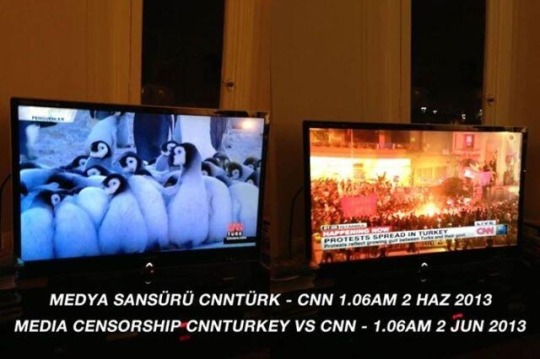
Boycott CNNTurk, NTV, Habertürk and all the mainstream media serving the purposes of the government in Turkey!
#censorship#censored#turkey#occupy gezi#occupy taksim#occupygezi#direngezi#corruption#corrupt government#cnnturk#cnn#cnn news#türkei#türkiye#Turkiet
24 notes
·
View notes
Photo
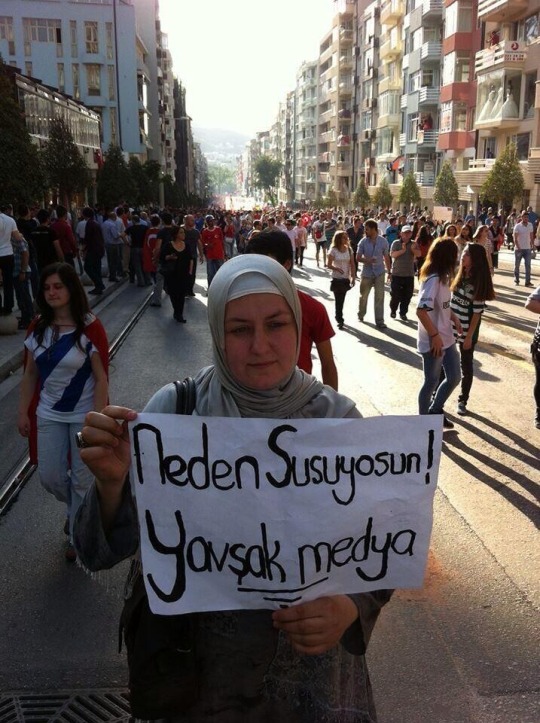
''Why do you keep silent, asshole media?''/ There were the people of Turkey in Taksim and elsewhere and they were there regardless of their beliefs, economic class and religion!
#occupy#occupygezi#direngezi#direngeziparkı#taksim#direntaksim#resistance#solidarity#turkey#socialism#freedom#liberty#Turkiet#türkei#turquia
14 notes
·
View notes
Link
Live stream from İstanbul's Taksim square. Simultaneous protests are continuing in different cities of Turkey.
#occupy gezi#occupy#occupy taksim#turkey#turkiet#türkie#folk#people#türkiye#direntaksim#direngeziparkı#direngezi#resistance#demonstrations#istanbul
2 notes
·
View notes
Photo
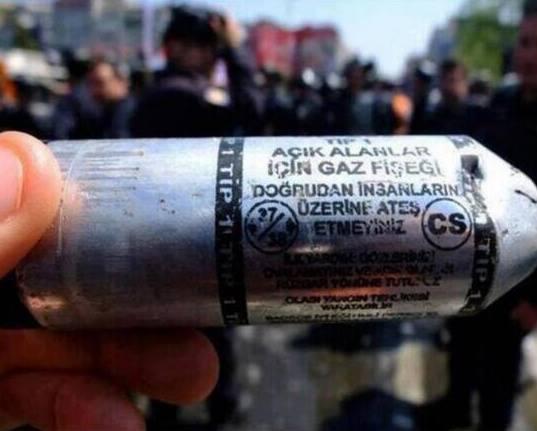
''gas cartridge. do not fire directly on people''/ on the contrary, theses were directly fired at the people in Taksim, Beşiktaş and elsewhere in Turkey!
21 notes
·
View notes
Photo
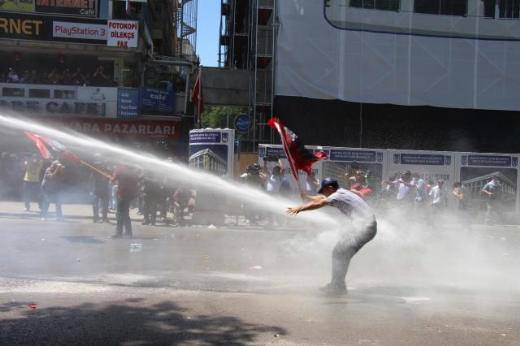

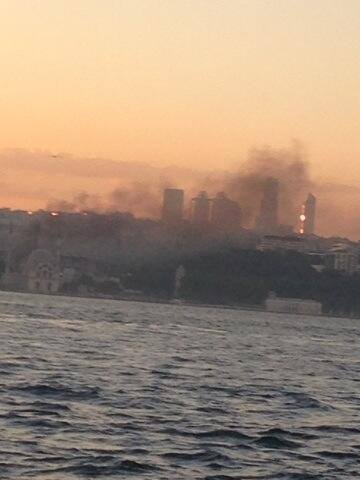
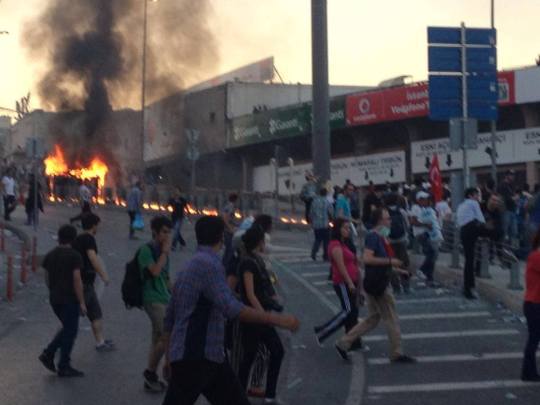
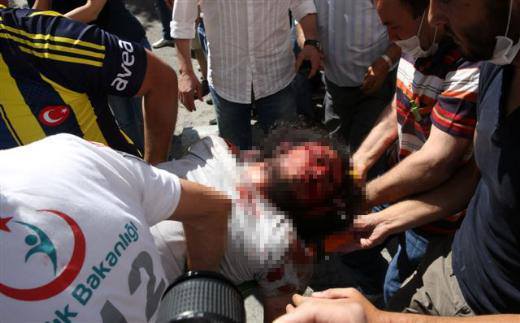
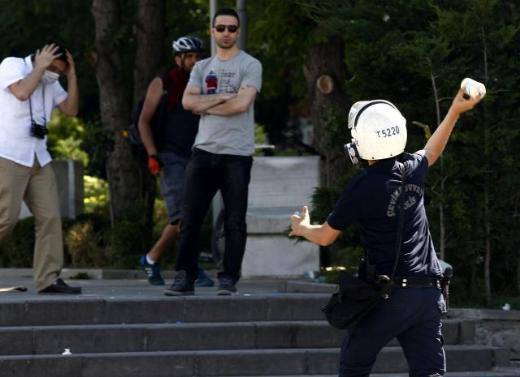
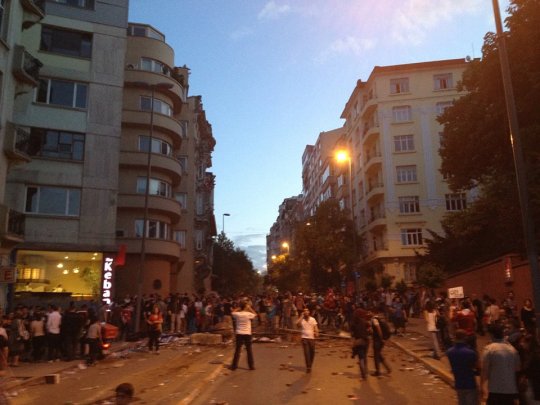
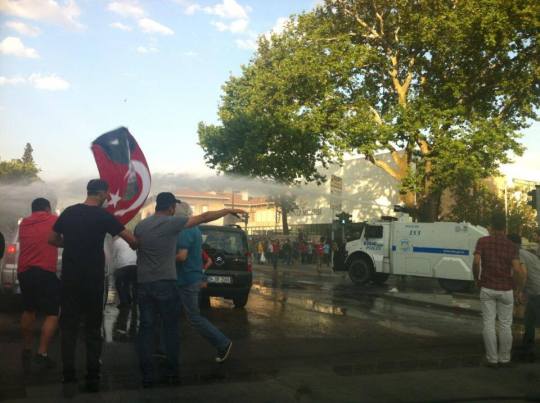
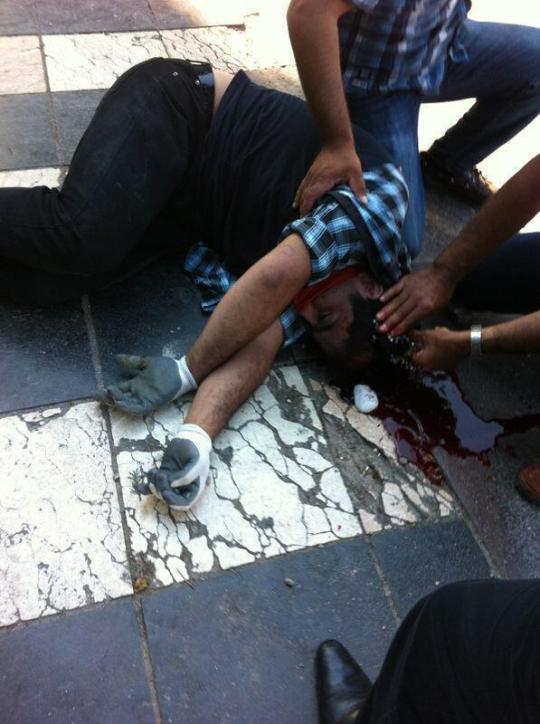
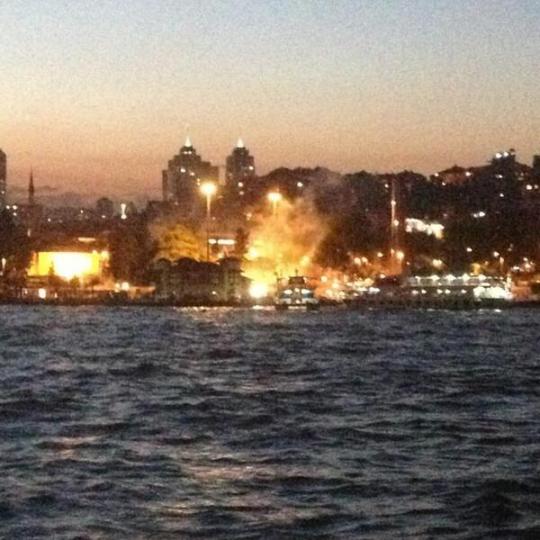
Following the protests in Taksim, people took to the streets in Beşiktaş however, the police was more violent this time. A toma ran over four people in Ankara whilst a person got hit in the head by a tear bomb. Beşiktaş is on fire. It is as if a war broke out in the vicinity. I also called a friend who lives in Beşiktaş right by where all these events have been taking place. She took part in the protests and told me that the police was vandalizing civilian properties like cars and throwing tear bombs through the windows of apartments, houses. On the other hand, she told me that she was exposed to a lot of tear gas in Taksim however, the gas used in Beşiktaş was different and much more painful than pepper gas. She told that she had difficulty in breathing and her whole body was burning with pain. NOW TELL ME WHAT THIS IS!
29 notes
·
View notes
Text
Dear comrades,
Do not swear, do not vandalize, do not be PROVOKED! This is not the way we want it! Do not divert from our cause! There are so many provokers among the protesters!
1 note
·
View note
Video
vimeo
Revival in 90 Seconds! Twitter, facebook and other social media tools are blocked by the government including one of the leftist Turkish newspaper websites, SoL Gazetesi. Support our cause, people of the world.
11 notes
·
View notes
Text
Among the Ottomans: Diaries from Turkey in World War I,’ by Ian Lyster (ed.)
Although this volume of two journals written during the First World War is titled “Among the Ottomans,” there is in fact little mingling between their British writers and ordinary Ottoman subjects. The first diary is that of Marie Lyster, who lived in the European bubble of Istanbul’s Beyoğlu neighborhood at the beginning of the 20th century. The second was written by her son, Henry Lyster, looking back on the time when he was posted as a British soldier to the frontline on the edges of the Ottoman Empire. Both are probably of more interest to the academic than the general reader, but they do still contain some nuggets of curiosity for those more broadly interested in the period.
Marie Lyster’s husband worked for the Ottoman Bank in Istanbul before hostilities broke out between the Allied and Central powers. He and his sons were then conscripted into the British Armed Forces, leaving Marie alone in the Ottoman capital to look after her elderly mother until the end of the war. Unsurprisingly, her diary from this time is therefore overwhelmingly concerned with domestic matters – odd jobs, errands, searching for lodgers, dealing with problematic servants, and teaching occasional English lessons. She lived on her husband’s money, but still had a thrifty, even rather austere existence, perennially worried about inflation and the vagaries of wartime rations. Particularly striking is the fact that she mentions coming into regular contact with officially hostile Austrians and Germans - “bless the poor dears” – never seeming to bear them any grudges whatsoever (and vice versa). Marie’s diaries come from a time when Istanbul was still a truly international city, and she herself seems to have had contact with almost every foreign nationality living there. Her isolation from ordinary Turks is almost reminiscent of some modern-day expat circles in Istanbul.
The domestic quality of Marie’s diary contrasts noticeably with that of her son, Henry Lyster’s. As a British soldier posted to the edges of the Ottoman Empire as it was steadily falling apart, it’s not surprising that his reflections are slightly more swashbuckling than his mother’s. There is also the fact that his reflections were written a number of years after the events described, so he was able to edit out some of the less interesting chaff. After a brief preamble, Henry’s diary moves swiftly on to consider his brief posting to the Dardenelles in the failed Gallipoli offensive in 1915, shortly after which he was posted to serve as an intelligence officer to support the work of Greek irregulars fighting the Bulgarians outside Salonica. He was moved once again later on, this time to work inside Ottoman territory, where he was set to get involved in even more British imperial skullduggery. However, the tide turned a few years later while he was posted in the town of İzmit, where he witnessed some of the early stages of the Turkish independence struggle, the Kemalist forces facing down the invading Greeks and beginning to drive them back to the Aegean. For the lay reader, this is probably the most interesting section of Henry’s diary.
It’s probably needless to say that neither he nor his mother were great literary stylists. The two were writing about extraordinary times, but neither had anything other than an ordinary eye for detail, writing in rather flat, colorless prose. Nevertheless, their diaries still hold some value as first-hand witnesses of history, and it’s a good thing that they have been recovered here for modern-day readers.
Source: http://www.hurriyetdailynews.com/among-the-ottomans--diaries-from-turkey-in-world-war-i.aspx?pageID=238&nID=47759&NewsCatID=474
#turkey#WWI#england#britain#turkish history#ottomans#ottoman empire#diaries#diary#history#memoirs#hurriyet daily news
0 notes
Link
The Paris Review is a literary magazine featuring original writing, art, and in-depth interviews with famous writers.
0 notes
Link
8 Ağustos 1928'de İstanbul'da doğdu Edip Cansever.
Edip Cansever'in eserlerini pek okumuşluğum yok ancak lisedeki edebiyat derslerinden hatırlıyorum şiirlerini. Şiir okumayı hiç sevmedim geçen seneye kadar. Edip Cansever'de okunacak güzel şairlerimizden. Yeni şeyler öğrenmek, okumaya devam etmek gerek. Bu arada uzun süredir Türkçe dilinde bir şeyler yazmadığımdan kelime seçimim biraz zorluk çıkarıyor bana. Neyse fazla konuşmamak lazım. İyiki senin gibi bir şair gelmiş Türkiye'ye, Edip Cansever.
0 notes